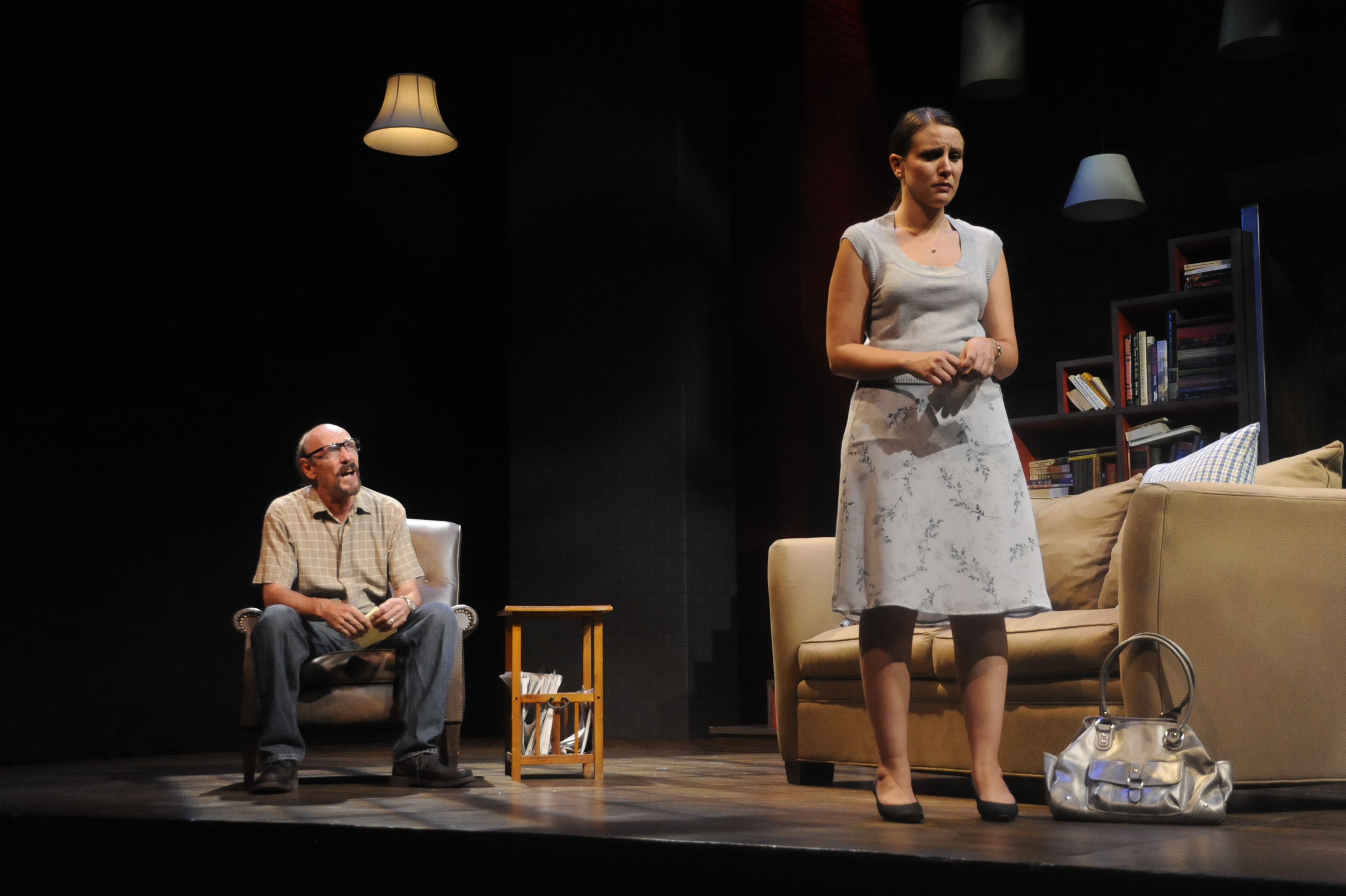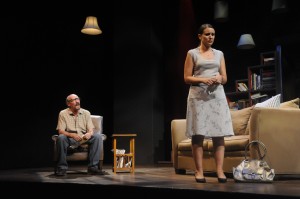
13 Sep TIO Denver: “After the Revolution,” A Review
Editor’s note: Telluride Inside… and Out’s monthly (more or less) column, Tall Tales, is so named because contributor Mark Stevens is one long drink of water. He is also long on talent. Mark is the author of “Antler Dust” and “Buried by the Roan,” both on the shelves of Telluride’s own Between the Covers Bookstore, 224 West Colorado Ave, Box 2129. He is a former reporter (Denver Post, Christian Science Monitor, Rocky Mountain News) and television producer (MacNeil/Lehrer NewsHour), now working in public relations. Mark also now writes theatre reviews for TIO, such as the one that follows.
Family secrets, once unearthed, have the ability to wreak havoc. As a result, they are ideal fodder for fiction of all types. (And non-fiction and memoirs of all flavors.)
What degree of discoloration will we accept before we no longer hold our heroes up as true legacies or pure role models?
The current political, sports and entertainment landscape is littered with individuals struggling to regain their footing as worthy leaders after a “secret” is uncovered. It’s one thing to watch a public figure struggle—and a whole other can of worms when that person is family.
In “After the Revolution,” playwright Amy Herzog unleashes a doozie of a secret on earnest young woman doing her flat-out best to carry on the legacy of her late grandfather. And the secret, once uncovered, sends her reeling.
The secret isn’t merely a matter of posting an asterisk under an otherwise glowing obituary. In “After the Revolution,” the notion that the revered leftie grandfather spied for the Soviet Union during World War II is, quite simply, an emotional neutron bomb that leaves no family member untouched.
But the most heavily impacted is Emma Joseph—and Emma’s story is inspired by the real events that happened to playwright Herzog in 1999, the same year the play takes place.
If you want a strong piece reality theater, one that is extremely well acted and beautifully presented, look no further than the current production at the Curious Theatre.
In a too-short interview in The Denver Post, Herzog told theater critic Lisa Kennedy that she wrote the play based on an interest in “the kind of scaffolding people build for themselves in terms of their own belief systems,” adding “I think I’ve always been troubled with questions of how things we hold dear become the things we hold dear, whether that process is arbitrary.”
(That’s a thinking playwright, if you ask me. Full interview here.)
When you go see this production—and you should—keep that last quote in mind as Lauren Bahlman (as Emma Joseph) watches her world fly apart. And as you watch those around Emma try to coach her through the resulting emotional gauntlet and back to even keel—a place where everyone has managed to justify and live with the secret. Herzog wrote a deft script that fully succeeds in the challenge she gave herself, and the Curious Theatre cast delivers a tense gem of a play that exposes raw moods in an unflinching, nuanced manner.
Emma Joseph didn’t merely just try and pick up the moral crusade of her grandfather, after all, or regurgitate his beliefs. She is running a foundation named for him. To make matters worse, she’s a new lawyer and she is in the middle of an against-all-odds, high-profile case (also drawn from “reality”) in the effort to equal the scales of social justice.
“After the Revolution” juggles themes of politics with family bonds. In the Joseph family, these are inseparable. There are fifty shades of being a Marxist but, for the most part, it’s a lefty bunch. There are various attempts to explain grandfather’s spying in terms of the historical context of the time it happened and, along the way, some very funny zingers that relieve the mostly serious tone.
Bahlman must carry the emotional weight and she does yeoman (yeowoman’s?) work (that’s a reference to the very funny ‘walkperson’ joke in the play). Bahlman shows a good range as Emma balances pressures from a new boyfriend, her family, and from one of the foundation’s biggest contributors.
Around her, the rest of the cast is sharp. As grandfather Joe’s widow Vera, Anne Oberbroeckling offers the feisty and funny spirit of a true believer and as Emma’s father Ben, Gordon McConnell’s makes us all feel the torture when Emma shuns contact.
During what I’ll call the “bullet point” scene, the woman beside me in the second row was sobbing softly. McConnell’s agony was palpable.
The expansive, two-tier, book-lined, house-cum-library set at the Curious multi-tasks easily. Direction, by Chip Walton, places the focus where it needs to be—on a shattered family given the challenge of redefining itself and, in many ways, telling the truth about itself. And its legacy.



Sorry, the comment form is closed at this time.